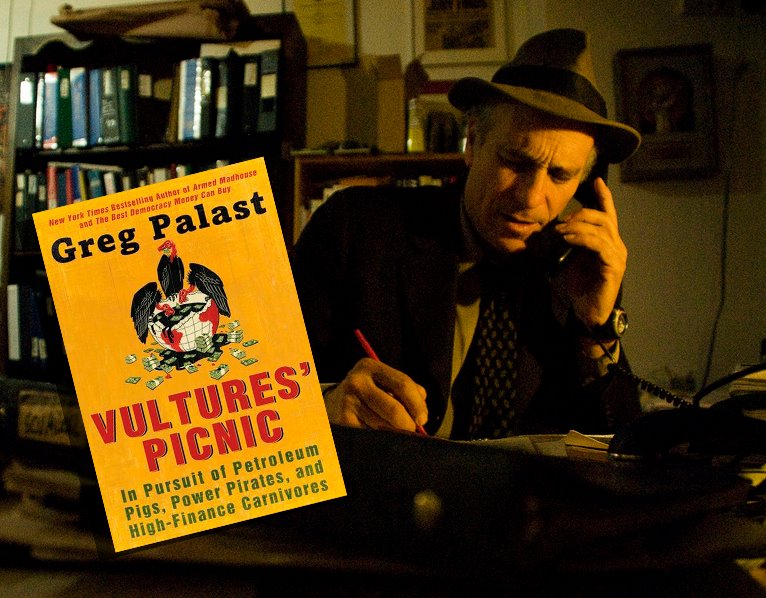by Greg Palast
South Carolina 2000: Six hundred police in riot gear facing a few dozen angry-as-hell workers on the docks of Charleston. In the darkness, rocks, clubs and blood fly. The cops beat the crap out of the protesters. Of course, it’s the union men who are arrested for conspiracy to riot. And of course, of the five men handcuffed, four are Black. The prosecutor: a White, Bible-thumping Attorney General running for Governor. The result: a state ripped in half - White versus Black.
South Carolina 2008: On Saturday, the Palmetto State may well choose our President, or at least the Democrat’s idea of a President. According to CNN and the pundit-ocracy, the only question is, Will the large Black population vote their pride (for Obama) or for “experience” (Hillary)? In other words, the election comes down to a matter of racial vanity.
The story of the dockworkers charged with rioting in 2000 suggest there’s an awfully good reason for Black folk to vote for one of their own. This is the chance to even the historic score in this land of lingering Jim Crow where the Confederate Flag flew over the capital while the longshoreman faced Southern justice.
But maybe there’s more to South Carolina’s story than Black and White.
Let’s re-wind the tape of the 2000 battle between cops and Black men. It was early that morning on the 19th of January when members of International Longshoremen’s Association Local 1422 “shaped up” to unload a container ship which had just pulled into port. It was hard work for good pay. An experienced union man could earn above $60,000 a year.
In this last hold-out of the Confederacy, it was one of the few places a Black man could get decent pay. Or any man.
That day, the stevedoring contractor handling the unloading decided it would hire the beggars down the dock, without experience or skills - and without union cards - willing to work for just one-third of union scale.
That night, union workers - Black, White, Whatever - fought for their lives and livelihoods.
At the heart of the turmoil in South Carolina in 2000 then, was not so much Black versus White, but union versus non-union. It was a battle between those looking for a good day’s pay versus those looking for a way not to pay it. The issue was - and is - class war, the conflict between the movers and the shakers and the moved and shaken.
The dockworkers of Charleston could see the future of America right down the road. Literally. Because right down the highway, they could see their cousins and brothers who worked in the Carolina textile mills kiss their jobs goodbye as they loaded the mill looms onto trains for Mexico.
The President, Bill Clinton, had signed NAFTA, made China a “most favored nation” in trade and urged us, with a flirtatious grin, to “make change our friend.”
But “change,” apparently, wasn’t in a friendly mood. In 2000, Guilford Mills shuttered its Greensboro, Carolina, fabric plant and reopened it in Tampico, Mexico. Four-hundred jobs went south. Springs Mills of Rock Hill, SC, closed down and abandoned 480 workers. Fieldcrest-Cannon pulled out of York, SC, and Great America Mills simply went bust.
South Carolina, then, is the story of globalization left out of Thomas Friedman’s wonders-of-the-free-market fantasies.
This week, while US media broadcasts cute-sy photo-ops from Black churches and replay the forgettable spats between candidates, the real issues of South Carolina are, thankfully, laid out in a book released today: On the Global Waterfront, by Suzan Erem and E. Paul Durrenberger.
Erem and Durrenberger portray the case of the Charleston Five dockworkers as an exemplary, desperate act of economic resistance.
(Note: You can view every article as one long page if you sign up as an Advocate Member, or higher).





